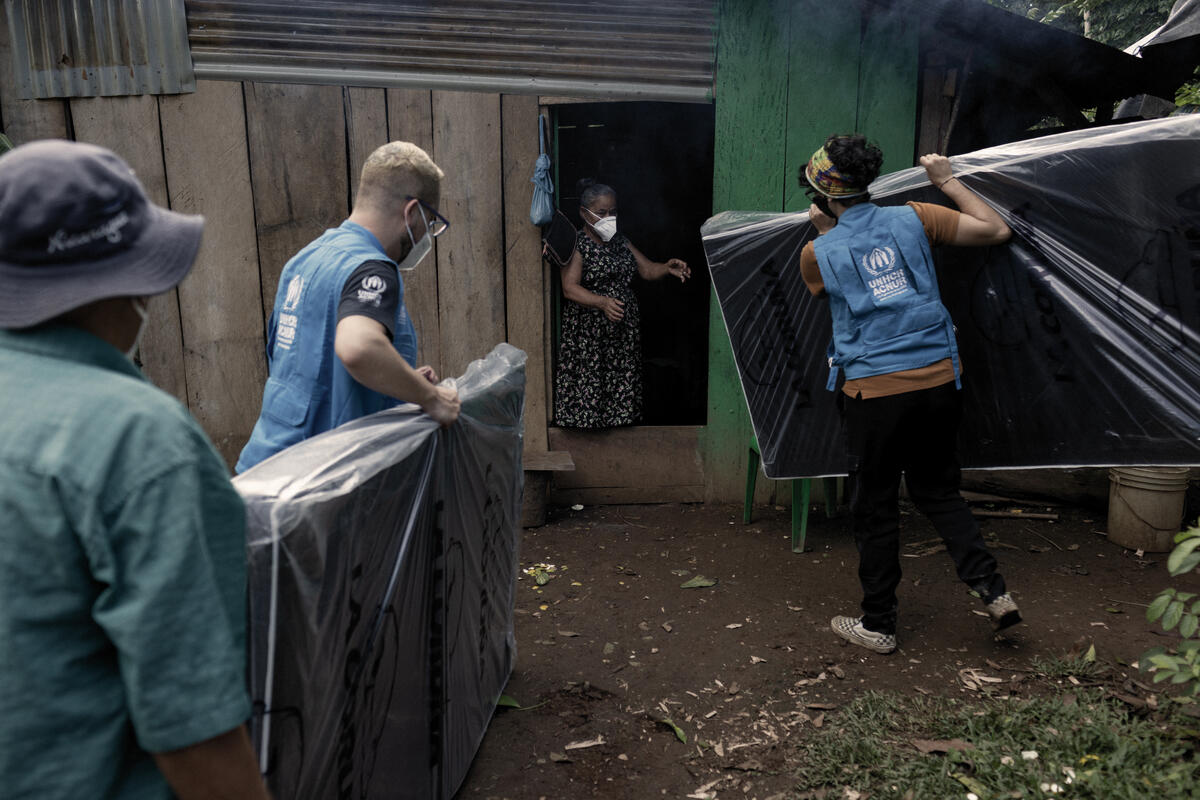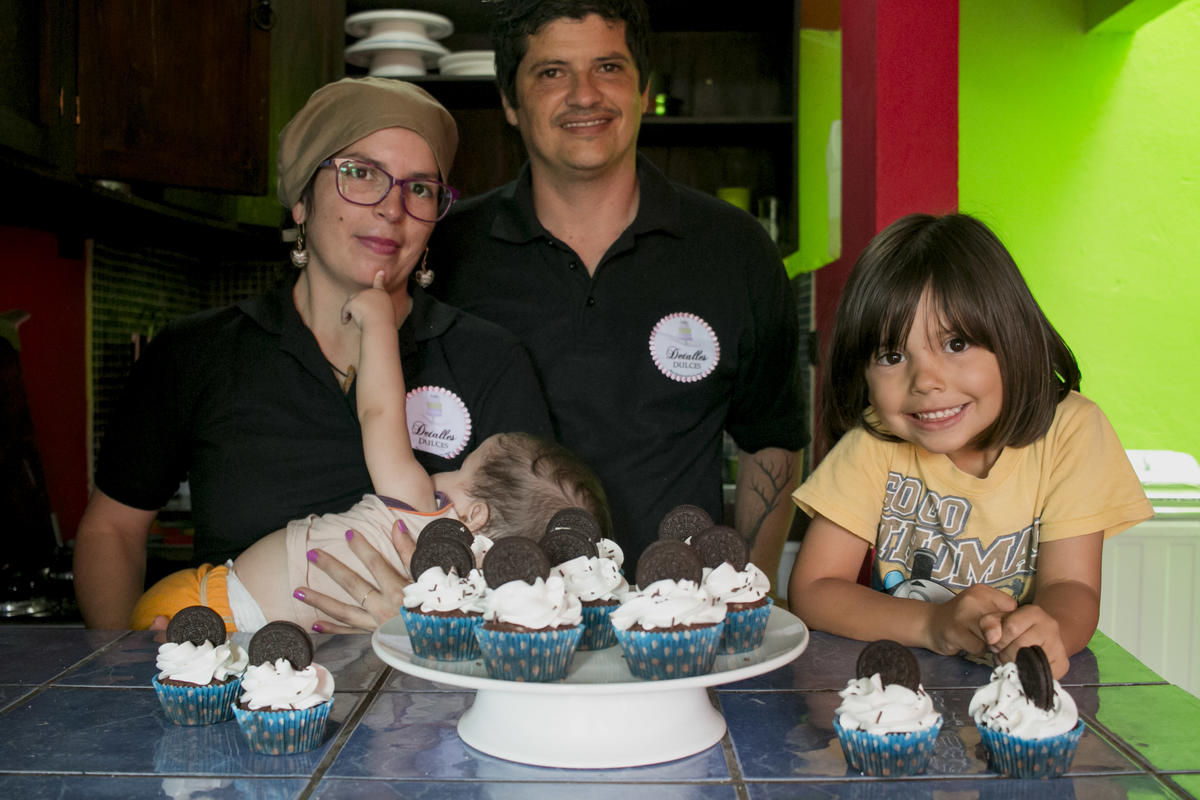Español
By Milton Moreno, UNHCR Agent for Costa Rica, Craig Loschmann, Economist, UNHCR Americas, and Theresa Beltramo, Senior Economist, UNHCR

In Costa Rica, the damaging impacts of the pandemic continue to ripple via the financial state – even as it partly recovers from 2020, when the place saw its sharpest financial contraction in a long time resulting in significant unemployment and mounting poverty (Environment Financial institution, 2021). However, by way of the pandemic, the nation proceeds to provide asylum to those in require of global defense, welcoming the maximum selection of asylum seekers, refugees and other displaced people in 30 decades (Determine 1).
Figure 1: Persons of worry to UNHCR in Costa Rica

The rapid increase in the selection of people of problem to UNHCR in Costa Rica – now equal to 3% of the national population – will come at a price tag. It has strained the government’s capacity to obtain and course of action conditions, and delayed the supply of documentation and perform permits for asylum-seekers, significantly in the Northern place bordering Nicaragua. The national techniques for education and learning, health and fitness, social security and legal assistance are also stretched. The final result is displaced men and women face a lot more challenges than at any time before in entirely integrating into the labour current market, supporting by themselves to fulfill essential needs, and contributing to the neighborhood economic system.
While UNHCR has stepped up its help and reaction to the pandemic in the in close proximity to time period, looking ahead to medium-term solutions, these worries spotlight the relevance for taking an region-based growth strategy in Costa Rica founded on further one-way links amongst humanitarian and improvement reaction. Executing so will improve the lives of displaced populations as effectively as that of host communities by constructing unique resilience and institutional capacities. An location-based mostly solution is specially necessary in the North, where by most Nicaraguans go on to enter Costa Rica in rising figures and investments are necessary in the area wellbeing and schooling infrastructure. Work opportunities and livelihoods interventions as well as private sector enhancement are also considerably desired to develop an enabling surroundings and new options.
Particularly what kind of assist is required?
UNHCR teamed up with Innovations for Poverty Motion (IPA) to perform two rounds of a cell phone survey concerning March and August 2021 to examine the effect of COVID-19 on displaced persons in Costa Rica. The survey was modeled just after the Environment Financial institution Large Frequency Cellphone Study conducted in Costa Rica and 70-furthermore nations globally (Entire world Bank, 2021). Even though not exhaustive, the survey final results affirm operational assessments and deliver vital proof on the regions wherever programmatic concentration must be stepped up: livelihoods, eradicating foods insecurity, and strengthening accessibility to vital expert services.
The three key teams of displaced populations in Costa Rica were represented in the study, namely Nicaraguans, Venezuelans and Cubans. Where by doable, UNHCR’s survey benefits were being in contrast with people from surveys of Costa Rican nationals performed by the Earth Financial institution in 2020. The comparison with nationwide households is essential when thinking of an place-based mostly method that emphasizes both equally displaced populations as well as host communities.
In accordance to UNHCR’s survey, the economic affect of the pandemic has been critical for displaced populations. Even nevertheless a sizeable share of respondents say they are employed, 75% also report that a household member had lost a occupation since pandemic-associated restrictions had been 1st place into spot in March 2020. This reflects the fragility of most households’ livelihood condition during the crisis and underlines the inherent fragility of displaced populations in financial shocks. In addition, virtually 75% of displaced respondents report less household money as opposed to pre-COVID instances. And despite indications of recovery, economical insecurity remains pronounced in August 2021 as 70% of respondents explained they were being compelled to deplete property or count on other individuals to meet day by day requirements.
Food stuff insecurity is substantial with 61% of displaced respondents reporting in August 2021 that an grownup in their relatives skipped a meal in the final week. This fee is considerably increased than the 12% documented by Costa Ricans in the Entire world Lender study in 2020. The Nicaraguan inhabitants, in unique, faces large concentrations of meals-relevant vulnerability: 40% of Nicaraguan respondents report a boy or girl going hungry in the earlier 30 times. Even with these widespread requirements, food stuff- and funds-centered support to displaced populations fell involving March and August 2021.
Determine 2: Meals insecurity noted by displaced homes in Costa Rica, August 2021
In the location of overall health expert services, 45% of displaced respondents say their residence needed a health-related appointment all through the interval among the study rounds, and of people, 13% had to delay or terminate the appointment. This determine is somewhat higher than the 5% of national households that were not able to get an appointment in 2020. Although there are no very clear variances in accessibility to healthcare throughout the a few most important displaced groups, Venezuelan respondents are significantly less probable than Cuban and Nicaraguan respondents to believe that the authorities presents health care without the need of discrimination.
University closures have been a major disruption for homes with college-aged small children, nevertheless there is small evidence of in depth dropouts. Virtually all little ones from displaced households remained enrolled in college in August 2021, and of those people that have not physically returned, the expectation is that they will do so in the coming yr. Nonetheless, the high quality of college is perceived to be worse considering the fact that the pandemic commenced. Just about fifty percent of all respondents evaluate the top quality of faculty to be poor or extremely inadequate in August 2021, compared to only 15% prior to March 2020. Troubles all around distant mastering are likely the most important cause, specially for Nicaraguan homes who report significantly less accessibility to world wide web and other computer system resources these types of as laptops.
Carry on our concentrate on advertising of self-sufficiency
Achieving self-sufficiency for the inhabitants of problem is at the main of the perform of UNHCR’s livelihoods and financial inclusion technique in Costa Rica. The critical to self-sufficiency lies in the collaboration amongst the general public and private sector, civil society organizations, and global cooperation. UNHCR Costa Rica prioritizes its facilitator role in the marketing of collaborations between these many stakeholders.
The relevance of chronicling the impact of the COVID-19 pandemic on displaced populations can not be understated. The means to quantify influence enables us to adapt latest and potential programmes and be additional productive at closing gaps in obtain to overall health, education and learning, work, and food stuff. Importantly, as has been the situation in other situations, these knowledge are a solid basis for advocacy with the government. In the situation of enhancement companions, the information present the proof necessary to fund and guide programmes that improve improvement results for both equally displaced populations and host communities.
Making on this collaborative study training, we hope that the Government of Costa Rica will look at such as forcibly displaced in nationwide data workout routines going ahead to ensure that no a person is still left at the rear of in our world-wide partnership to monitor and supply on the SDGs (UN SDGs, 2017).





